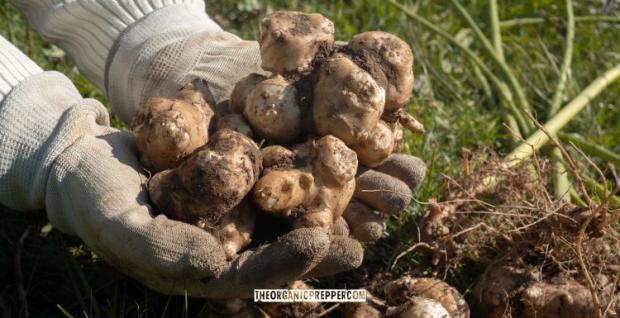
Breaking News
 SILVER CRASHES TO $75 - But China Is Paying $89 (Ghost Week Trap)
SILVER CRASHES TO $75 - But China Is Paying $89 (Ghost Week Trap)
 Firegate: Democrat LA Mayor Karen Bass' Admin Altered Palisades Fire Report & Deleted Evidence
Firegate: Democrat LA Mayor Karen Bass' Admin Altered Palisades Fire Report & Deleted Evidence
 BREAKING: Candace Owens' Massive Mind Control House of Cards is Now Collapsing in Real Time
BREAKING: Candace Owens' Massive Mind Control House of Cards is Now Collapsing in Real Time
 We Cannot Build an Economy on Lies
We Cannot Build an Economy on Lies
Top Tech News
 EngineAI T800: Born to Disrupt! #EngineAI #robotics #newtechnology #newproduct
EngineAI T800: Born to Disrupt! #EngineAI #robotics #newtechnology #newproduct
 This Silicon Anode Breakthrough Could Mark A Turning Point For EV Batteries [Update]
This Silicon Anode Breakthrough Could Mark A Turning Point For EV Batteries [Update]
 Travel gadget promises to dry and iron your clothes – totally hands-free
Travel gadget promises to dry and iron your clothes – totally hands-free
 Perfect Aircrete, Kitchen Ingredients.
Perfect Aircrete, Kitchen Ingredients.
 Futuristic pixel-raising display lets you feel what's onscreen
Futuristic pixel-raising display lets you feel what's onscreen
 Cutting-Edge Facility Generates Pure Water and Hydrogen Fuel from Seawater for Mere Pennies
Cutting-Edge Facility Generates Pure Water and Hydrogen Fuel from Seawater for Mere Pennies
 This tiny dev board is packed with features for ambitious makers
This tiny dev board is packed with features for ambitious makers
 Scientists Discover Gel to Regrow Tooth Enamel
Scientists Discover Gel to Regrow Tooth Enamel
 Vitamin C and Dandelion Root Killing Cancer Cells -- as Former CDC Director Calls for COVID-19...
Vitamin C and Dandelion Root Killing Cancer Cells -- as Former CDC Director Calls for COVID-19...
 Galactic Brain: US firm plans space-based data centers, power grid to challenge China
Galactic Brain: US firm plans space-based data centers, power grid to challenge China
Why Preppers Should Consider Growing Jerusalem Artichoke

I'm really trying to boost my food production at my place this year, and it's gotten me thinking about what plants I want to add to my place to do so. For years now, I've wanted to experiment with Jerusalem artichoke. I find it in the mountains when I go hiking (it's pretty easy to identify), I see it in the garden catalogs, but it's yet to find its way over to my place.
This year, I'm hoping to change that.
Here are some of the reasons you may want to add Jerusalem artichoke to your place as well.
Jerusalem artichoke is a perennial.
This is one of the things that Rick Austin and Gaia's Garden really harp on consistently – the importance of planting perennials if you want to have any semblance of permaculture. You can plant this stuff one time, and provided you don't over-harvest, you'll have a steady crop of it for years to come.
J-choke multiplies like a weed.
Though it's a native American plant, you would think this stuff came from overseas – the stuff spreads like wildfire. It's fun to see patches of it spread out in the mountains over the years. The same can happen in your garden. Plant J-choke in one location, and it won't be long till it gradually spreads, much like asparagus. To my mind, that's a big win here.



